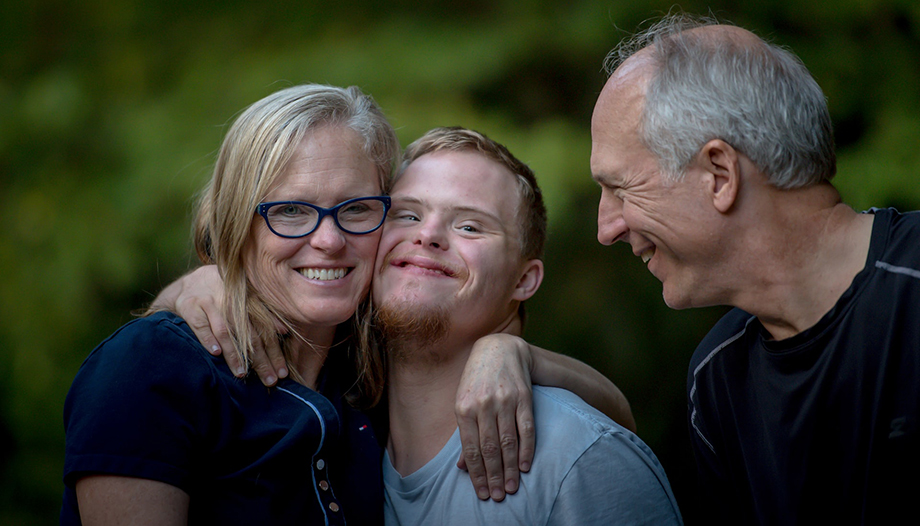Francisco's kiss on the tumor-covered forehead of Vinicio Riva - the man disfigured by neurofibromatosis - resounded like a silent manifesto. It was not compassion: it was a recognition of human dignity embodied in a historic image. That gesture, which moved the world in 2013, has its roots in the 4th century, when St. Basil founded a large charitable complex on the outskirts of Caesarea, which included a hospital, leprosarium, flophouse, hospice and orphanage.
The Church's work with people with disabilities is not new, but today it is a beacon amidst the fog of a world that idolizes efficiency, bodily perfection and individualistic well-being. The recent Declaration of the Dicastery for the Doctrine of the Faith, "Dignitas Infinita"(2024) proclaims it clearly: "One criterion for verifying real attention to the dignity of each individual is, obviously, the attention given to the most disadvantaged. Our time, unfortunately, is not distinguished by such attention".
True stories
In a world that often marginalizes frailty, the Catholic Church deepens its commitment to people with disabilities, recalling that dignity does not depend on utility.
Andrea, 29, was born with Down syndrome and severe heart disease. Baptized in the barracks of the Santa María de Caná parish in Madrid, her name included "María" as a supplication: "We were aware that she was going to need a lot of help from the Virgin". Today, Andrea is the first woman with Down syndrome to obtain a black belt in karate in Madrid (2019), Spanish champion in 2022 and 2023, and bronze medalist in European championships. After graduating from the Autonomous University of Madrid thanks to the Prodis Foundation, she works at Accenture, where, according to her mother, "she is integrated and valued. She is an important pillar. Her faith is active: she participates in the parish choir and is "a fan of the Caris," as she calls the Charismatic Renewal. "She is cheerful, outgoing, very empathetic. Family life revolves around her," celebrates Beatriz, her mother, who sums up her struggle: "Andrea is a miracle... in the ICU we never imagined this".
Nolan Smitha 25-year-old from Kansas, was part of the group of people who participated in the development of the document "The Church is our Home. This young man with Down syndrome explains that he has helped his church in various ways. "I have served as an altar server, I have helped in teaching religious education with my father, and I serve as a lector at this time. I have also helped with the Christmas Eve children's pageant and have also decorated the church at Christmas and Easter time," notes Nolan.
The power of prayer
José María is the seventh child of Teresa Robles, who also has a son with autistic traits. José María has also been fighting, for years, a leukemia in whose fight he encountered medical prejudice: "We were encouraged to go to palliative care... we appreciate little value for the life of a person with a disability". Teresa founded the Instagram account @ponundownentuvida, which mobilized more than 40,000 followers and a global prayer network. "The best social network is the Communion of Saints," she says. Teresa describes the "José María effect:" "They transform hearts without violence. One day, an angry driver saw José María smiling... and his face changed." For her, her son came "to change people's look, to make a better world".
The power of prayer and community are pillars: Teresa Robles experienced "the power of prayer, which is physically noticeable". When José María could not receive the transplant, "I noticed a superhuman strength". This network included ecumenical gestures: two Muslim women wrote to her: "They were going to pray for José María because they prayed to the same God... That touched me very much".
Making the difference visible
Initiatives such as the Cafés Joyeux in Paris, employing people with disabilities just a few meters from the Arc de Triomphe, demonstrate that inclusion in the workplace is possible. Its founder, Yann Bucaille-Lanrezac, received the Boston Consulting Group's Social Entrepreneur Award.
Cilou, a French artist who composed a song and choreography for Louis, a child with trisomy 21, points out that "the joy of Down syndrome leads us to be authentic". This authenticity is what Pope Francis promoted under the so-called "revolution of tenderness": an antidote to the throwaway culture. Healthy societies integrate everyone into the "we". Cilou, for example, felt the desire to compose a song inspired by Louis, called "Viva la difference".
Pastoral care for the disabled
Following the guidelines of the bishops' conferences, parishes are beginning to adapt the rites and spaces so that children and adults with intellectual disabilities can experience the sacraments in a way that they can better understand them. For example, for catechesis, pictograms are used to explain the rite in a visual way, allowing a better understanding of gestures, symbols and words. The celebrations are intimate, with reduced seating capacity, to avoid sensory over-stimulation.
The sacrament of penance is also transformed. In some parishes, confessions include drawings that help to understand concepts such as sin, forgiveness or reconciliation. There are support guides who mediate communication, and silent spaces have been created, free of luminous or sound stimuli, to favor an atmosphere of recollection. "It is not enough to set up ramps. We need to change the way we look at church life," says the mother of a disabled son.







